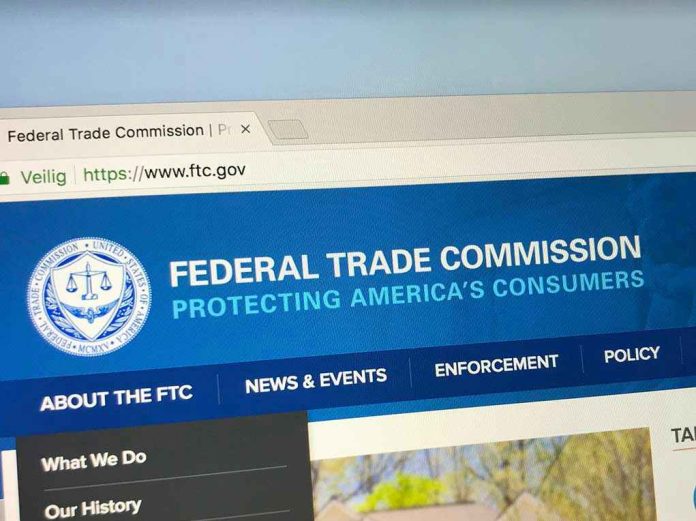
The Federal Trade Commission’s new amendments to COPPA herald a significant shift in digital privacy, demanding parental consent before collecting children’s data.
Story Highlights
- FTC mandates parental consent for children’s data collection under COPPA.
- New rules expand personal information definition to include biometric data.
- Amendments aim to enhance transparency and security in data handling.
- Compliance deadline set for April 22, 2026.
FTC’s New Rules on Children’s Data Privacy
The Federal Trade Commission (FTC) has finalized significant amendments to the Children’s Online Privacy Protection Act (COPPA). These changes require companies to notify and obtain verifiable parental consent before collecting personal data from children under 13. This update, effective from June 23, 2025, marks the first major revision to COPPA since 2013, reflecting an increased emphasis on safeguarding children’s online privacy.
Impact of the New Amendments
The amendments expand the definition of personal information to include biometric data, introducing stricter data retention and security requirements. Companies must now disclose Safe Harbor program membership publicly, enhancing transparency. This regulatory shift signals a reinforced commitment to children’s privacy, amid rising concerns over digital data breaches and targeted advertising.
These changes will inevitably impose operational challenges on businesses. Companies must update privacy policies and consent mechanisms promptly to comply with the new rules. The deadline for full compliance is April 22, 2026, providing a grace period for adaptation to these enhanced requirements.
Broader Implications and Stakeholder Reactions
The short-term implications involve businesses rapidly adjusting privacy protocols, potentially reducing targeted advertising to children. In the long term, these changes could foster greater parental oversight and trust in online platforms. However, businesses may face increased compliance costs, leading to debates about the balance between privacy protection and economic impact.
Industry experts recognize the amendments as a progressive step toward aligning U.S. privacy protections with international standards, such as the EU’s GDPR. While privacy advocates applaud the stronger safeguards, industry players express concern over the operational complexities and potential legal risks introduced by these amendments.
Overall, the FTC’s move underscores a significant regulatory shift, prioritizing children’s safety and privacy in the digital age. The amendments not only enhance protections for young users but also set a precedent for future privacy legislation and regulatory initiatives both domestically and internationally.
Sources:
Privacy and Data Security Insight (May 2025)
Koley Jessen Legal Analysis (June 2025)
eCFR: Children’s Online Privacy Protection Rule
Securiti COPPA Amendments Overview (2025)





